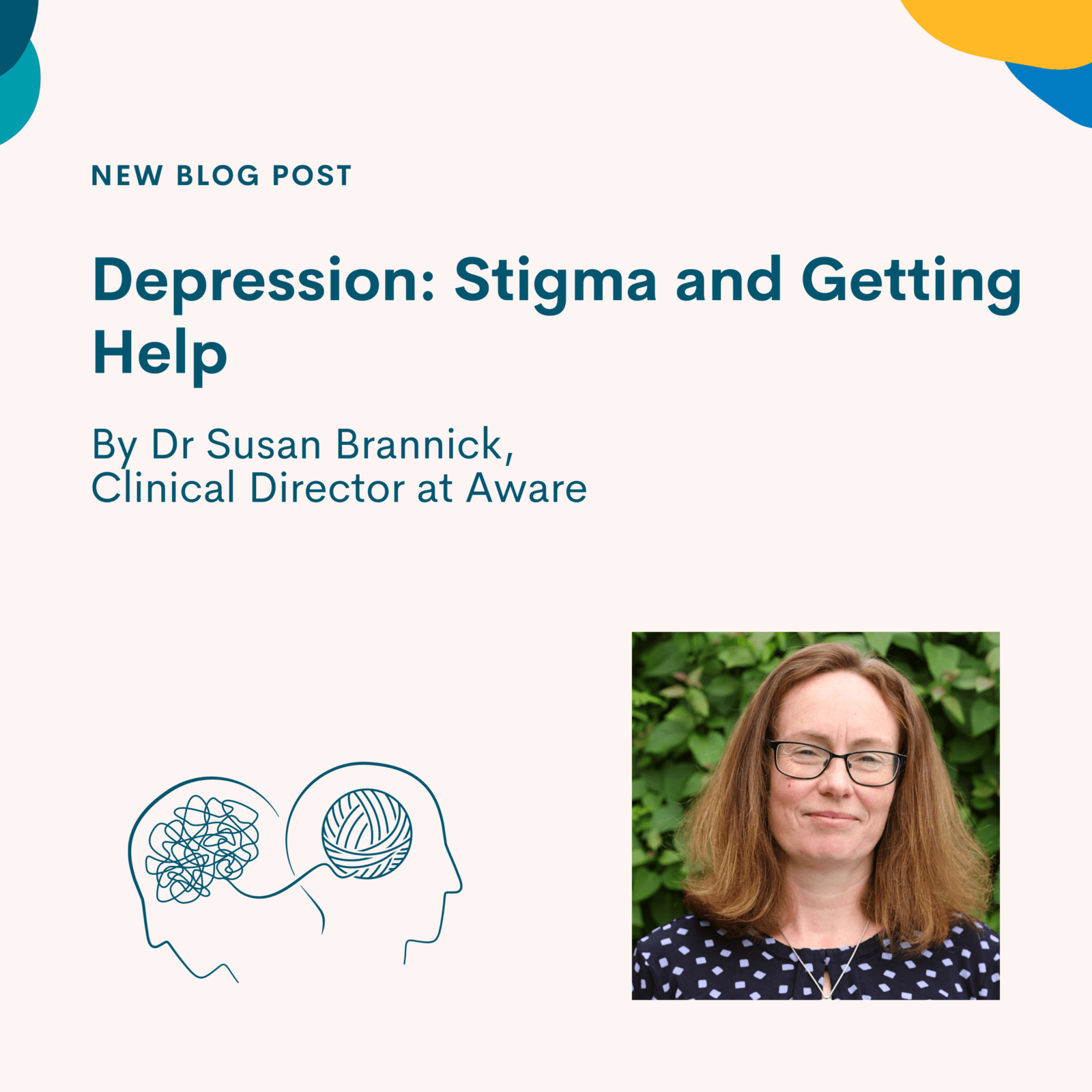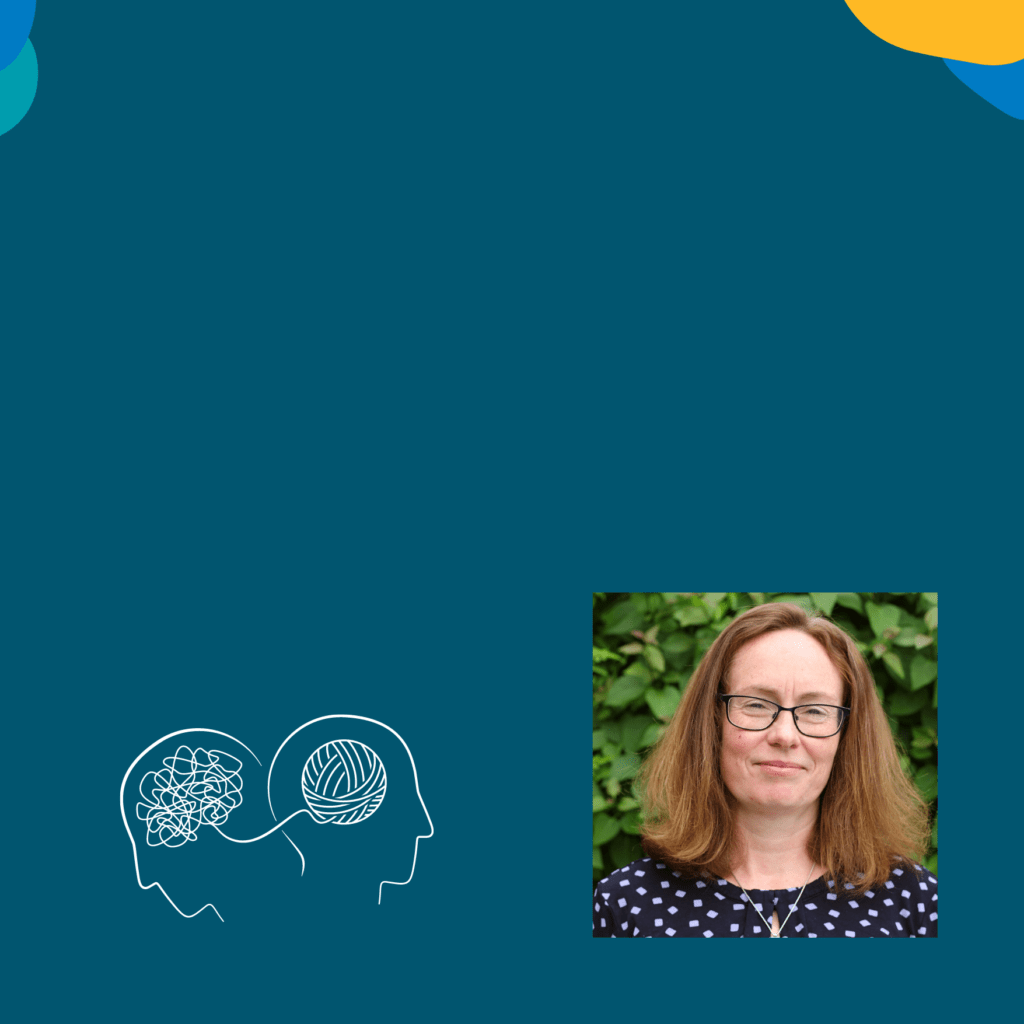
This month, we are launching Aware Mental Health week on 7th October. Our campaign this year aims to increase understanding and awareness of depression. You can find more details on our campaign here.
Depression is very common condition that affects people all over the world. The WHO estimates about 5% of the population is affected at any one time. However, depression is often misunderstood, and some studies report that only half of people living with depression seek professional help for it. This is interesting given the rise of public information campaigns around mental health and the growing understanding and acceptance of mental health difficulties in contemporary society.
A recent paper looked at predicting what might influence whether people may seek help for depression. They included stigma and treatment experiences as well as illness representations (how they understand depression, what they think it is), what they thought caused depression and how confident they felt about looking after their health. In this paper they explored each of these in order to test out their ‘seeking mental healthcare model’.
Authors described getting help for depression as involving these steps.
1) Experiencing symptoms
2) Identifying them as symptoms
3) Making an intention to get help and
4) Acting on that intention
Authors note that a crucial part of getting help is recognising one’s experience as potentially being that of depression, or anxiety and so on. Authors found that participants were more likely to recognise symptoms if they also had a higher belief in a continuum idea of mental health. That is, that mental health exists on a spectrum from mild to moderate to severe, and it is possible for any one of us at any time to move on that continuum.
This is a different idea from historical models of mental health conditions that were more binary, i.e. unwell or well. Authors note that stigma also has a big impact on the likelihood to seek help. They also looked at mental health literacy (the ability to understand and apply information about depression for instance). This unsurprisingly was linked to lower stigma, and higher stigma was a barrier to increasing it. This points perhaps again to the importance of tackling stigma around mental health, as it can often form a barrier for many people to even take the first step in a recovery journey.
Beliefs about what may have caused a participant’s depression were also linked to help seeking. Authors point to the usefulness of a wider understanding of depression, including social and psychological aspects as being helpful in reducing stigma and increasing help seeking. In this study, researchers found that a range of different ideas about the cause of depression was linked with higher stigma.
This is an interesting study as it helps unpack some of the potential barriers people may face in getting help with a mental health difficulty. It highlights the role of stigma and how this may work at an individual level, i.e. a person’s own beliefs and actions. Our intention for Aware Mental Health Week is to continue to educate and inform about what depression actually is, as well as hearing from people who have experienced it. This is to combat the ongoing stigma that we see in mental health.
However, we also continue to have work to do to combat stigma at a structural level, i.e. policies, practices, and laws that may discriminate again people with mental health conditions at a societal level.
The 2025 budget for mental health just released is perhaps a good example of obstacles that we face here. As was the case last year, funding allocated to mental health in the overall health budget remains at less than 6%. This is half of the proposed Sláintecare requirement, and less than half the recommendation of the World Health Organisation. Given the overall spending choices and strategy in the budget, one might wonder if this is an intentional choice to continue to under fund mental health services into 2025 and beyond. It is important to challenge stigma at an individual level, and it is also important that funding follows policy across the country so that people can get the help they need, when they need it.
This blog is by Dr Susan Brannick, Clinical Director at Aware as part of a monthly blog series.


